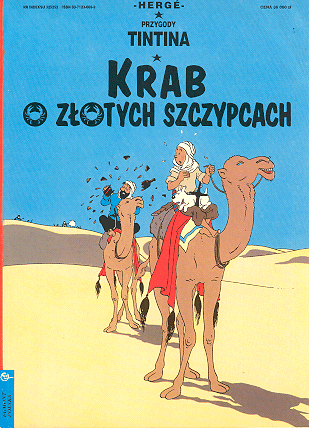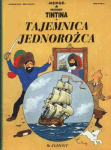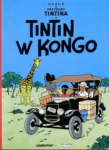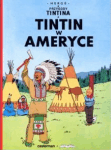| TINTIN LANGUAGES | |
| AFRIKAANS | |
| ALGUERES | |
| ALSATIAN | |
| ARABIC | |
| ASTURIAN | |
| BASQUE | |
| BERNESE | |
| BENGALI | |
| BRETON | |
| BULGARE | |
| CAMBODIAN | |
| CATALAN | |
| CHINESE | |
| CORSICAN | |
| CZECH | |
| DANISH | |
| DUTCH | |
| ENGLISH | |
| ESPERANTO | |
| FARSI | |
| FAEROESE | |
| FINNISH | |
| FRENCH | |
| FRIESIAN | |
| GALICIAN | |
| GALLO | |
| GAUMIAN | |
| GERMAN | |
| GREEK | |
| HEBREW | |
| HUNGARIAN | |
| ICELANDIC | |
| INDONESIAN | |
| ITALIAN | |
| JAPANESE | |
| KOREAN | |
| LATIN | |
| LUXEMBOURGER | |
| MALAYALAM | |
| NORWEGIAN | |
| OCCITAN | |
| PICARDY | |
| POLISH | |
| PORTUGUESE | |
| ROMANSCH | |
| RUSSIAN | |
| SERBO-CROAT | |
| SINHALESE | |
| SLOVAK | |
| SPANISH | |
| SWEDISH | |
| TAHITIAN | |
| TAIWANESE | |
| THAI | |
| TIBETAN | |
| TURKISH | |
| VIETNAMESE | |
| WELSH | |
| TOTAL 60 VERIFIED LANGUAGES | |
| RUMOURS | |
| MIRANDES | |
|
MONEGASCO |
|
| PROVENÇAL | |
| RUANDES | |
| MONEGASCO | |
| LINKS | CRAB MENÚ | CASTAFIORE MENU |
 |
POLISH | |||||||||||
|
||||||||||||
|
Polish is spoken by
almost all of the 35 million inhabitants of Poland, by about
700,000 people in the United States, and by smaller groups in the
Lithuania, Ukraine, Canada, Brazil, and other countries. It is one
of the Slavic languages and thus part of the Indo-European family.
Polish is written in the Roman alphabet, with q, v, and x missing, and with j pronounced y, w pronounced v, and c pronounced ts. However, there are a bewildering number of diacritical marks, including acute accents, dots, hooks, and, in the case of the 1, a bar (l). Polish vocabulary naturally resembles that of the other Slavic languages. Such Polish words as bez (without), most (bridge), cena (price), and zima (winter) are identical in Russian, Czech, Bulgarian, and Serbo-Croatian. But "peace," which is mir in Russian and mír in Czech, in Polish is pokój, while "island" (ostrov in Russian and Czech) in Polish is wyspa. The Polish words for "north," "south," "east," and "west" are respectively pólnoc (which also means "midnight"), poludnie (noon), wschód (rising), and zachód (setting). Some Polish words seem unpronounceable to one who has never studied the language (e.g., przemysl— industry, szescziesiat—sixty, wszeehs'wiat—universe, szczs'liw)—happy; lucky). Equally formidable are the names of the Polish cities Szczecin, Bydgoszcz, and Swietochiowice. Wiadyslaw Reymont, the Polish novelist and short-story writer, was the winner of the Nobel Prize for Literature in 1924.
|
|
PUBLISHERS CASTERMAN EGMONT POLSKA |
|
ONLINE SHOPING |
|
LINKS ?
|



|
|
I'VE GOT THIS ONE | ! WANTED! |